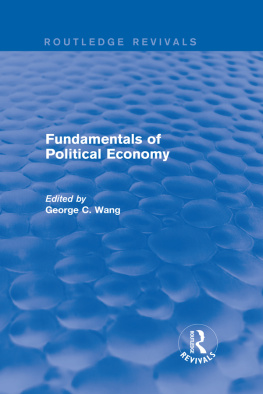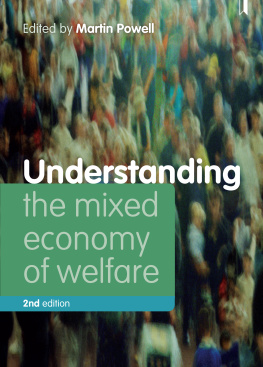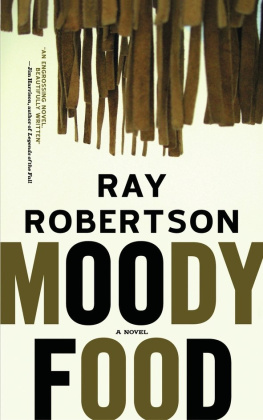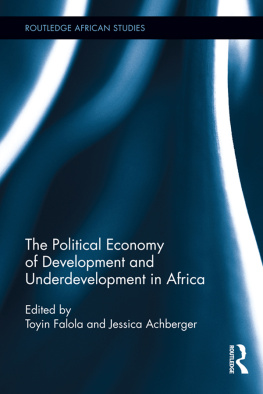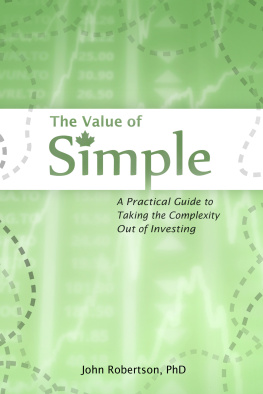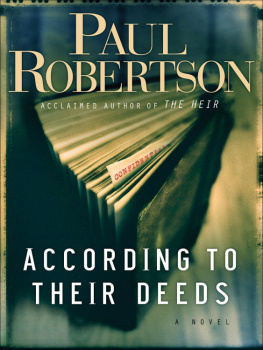Martin Robertson - Fundamentals of Political Economy
Here you can read online Martin Robertson - Fundamentals of Political Economy full text of the book (entire story) in english for free. Download pdf and epub, get meaning, cover and reviews about this ebook. year: 1977, publisher: Routledge, genre: Politics. Description of the work, (preface) as well as reviews are available. Best literature library LitArk.com created for fans of good reading and offers a wide selection of genres:
Romance novel
Science fiction
Adventure
Detective
Science
History
Home and family
Prose
Art
Politics
Computer
Non-fiction
Religion
Business
Children
Humor
Choose a favorite category and find really read worthwhile books. Enjoy immersion in the world of imagination, feel the emotions of the characters or learn something new for yourself, make an fascinating discovery.
- Book:Fundamentals of Political Economy
- Author:
- Publisher:Routledge
- Genre:
- Year:1977
- Rating:5 / 5
- Favourites:Add to favourites
- Your mark:
- 100
- 1
- 2
- 3
- 4
- 5
Fundamentals of Political Economy: summary, description and annotation
We offer to read an annotation, description, summary or preface (depends on what the author of the book "Fundamentals of Political Economy" wrote himself). If you haven't found the necessary information about the book — write in the comments, we will try to find it.
Fundamentals of Political Economy — read online for free the complete book (whole text) full work
Below is the text of the book, divided by pages. System saving the place of the last page read, allows you to conveniently read the book "Fundamentals of Political Economy" online for free, without having to search again every time where you left off. Put a bookmark, and you can go to the page where you finished reading at any time.
Font size:
Interval:
Bookmark:
First published 1977 by M.E. Sharpe
Reissued 2018 by Routledge
2 Park Square, Milton Park, Abingdon, Oxon OX14 4RN
711 Third Avenue, New York, NY 10017, USA
Routledge is an imprint of the Taylor & Francis Group, an informa business
Copyright 1977 by Taylor & Francis
No part of this book may be reprinted or reproduced or utilised in any form or by any electronic, mechanical, or other means, now known or hereafter invented, including photocopying and recording, or in any information storage or retrieval system, without permission in writing from the publishers.
Notices
No responsibility is assumed by the publisher for any injury and/or damage to persons or property as a matter of products liability, negligence or otherwise, or from any use of operation of any methods, products, instructions or ideas contained in the material herein.
Practitioners and researchers must always rely on their own experience and knowledge in evaluating and using any information, methods, compounds, or experiments described herein. In using such information or methods they should be mindful of their own safety and the safety of others, including parties for whom they have a professional responsibility.
Product or corporate names may be trademarks or registered trademarks, and are used only for identification and explanation without intent to infringe.
Publishers Note
The publisher has gone to great lengths to ensure the quality of this reprint but points out that some imperfections in the original copies may be apparent.
Disclaimer
The publisher has made every effort to trace copyright holders and welcomes correspondence from those they have been unable to contact.
Fundamentals of Political Economy is a translation of Cheng-chih ching-chi hseh chi-chu chih-shih, 2 vols., compiled by the Fundamentals of Political Economy Writing Group, Shanghai (Shanghai Peoples Press, 1974). The translations of Chapters 1-13 were first published in the journal Chinese Economic Studies . Copyright 1975, 1976 by International Arts and Sciences Press, Inc. Translated by K. K. Fung.
ISBN 13: 978-0-873-32095-5 (hbk)
ISBN 13: 978-1-315-17896-7 (ebk)

George C. Wang
Fundamentals of Political Economy is a popular introductory economics text published in the Peoples Republic of China in 1974 as a part of the Youth Self-Education series designed particularly for individual or group study. The primary purpose of this series, according to the preface, is to elevate the cultural level of the youths going down to the countryside, to advance their knowledge of the social and natural sciences, as well as to arouse their class consciousness. This translation makes available a comprehensive and authentic text of the Chinese version of Marxist political economy, a version which differs profoundly from that of the Soviet Union. ()
Fundamentals of Political Economy was originally published in two volumes. The first volume (11 chapters) is a critical review of the historical development of capitalism. The second volume (12 chapters) deals with Marxist economic principles and the manner in which they are applied in China.
Volume I is an informative historical account from a Chinese point of view and stands as a valuable primer on Marxist political economy in general. Volume II will be of particular interest to students of Marxism as it has been applied to the Chinese economy because it is the Chinese Communists, probably Mao Tse-tung more than anyone else, who first successfully applied Marxist theory to a semicolonial and semifeudal society with a predominantly agricultural economy (other than the Mongolian Peoples Republic). Today Chinas sweeping and thoroughgoing social changes, such as land reform and the socialization of the means of production, appeal to peoples in developing countries who are disappointed with the slow progress of development under capitalism.
The principal features, some of which we will discuss in more detail below, of the Chinese model of economic development outlined in Volume II may be characterized as follows:
- The Socialization of the Means of Production ()
- Economic Planning and Proportional Growth between Sectors ()
- Agriculture Is the Foundation, and Industry Is the Leading Factor ()
- Practicing Economy and Capital Accumulation ()
- The Economic Structure by the Type of Ownership ()
- National Income and Its Distribution ()
- Foreign Trade and Foreign Aid, and the Future of Socialism ()
In the 1950s a transitory arrangement known as state-private joint operation was set up for the purpose of smoothing the transition of large (such as textiles) and middle-size enterprises (such as hardwares) that had remained in private hands in a way that would make it possible to continue the enterprises while changing the ownership system. There were two variants of joint operation by enterprise and by trade. In the joint enterprise the state was a partner, participating in investment and management. The private shares were to be paid off by the company out of its net revenue. In manufacturing, those producing the same type of products in the same locality were organized into a special company under the supervision of the Industrial Bureau of the local government.
The broadening of state control over consumer goods began in November 1953, as grains and edible oil were put under a ) The state set up an annual quota of procurement that had to be fulfilled under fixed procurement prices. The planned supply part of the scheme meant some form of rationing in accordance with availabilities, based partly on consumers needs, and partly on the states requirements for export and for commodity reserves. The operation of these two schemes resulted in the elimination of an open market for controlled goods, although government-controlled grain markets continued to exist.
Earlier, mainly between 1950 and 1952, lands confiscated from landlords and rich peasants were redistributed to poor peasants. But land redistribution was only a means to an end because (1) private ownership was incompatible with socialism, and (2) the landholding after the redistribution was too small to operate economically. This was especially true with regard to the large-scale capital formation necessary to raise agricultural output substantially. Initially, it was planned to make collectivization a gradual process, but the slow growth of agricultural output and the reappearance of such capitalist phenomena as speculation and increasing polarization of income led to a decision to accelerate the process. So in 1955 the CCP organized peasants into agricultural producers cooperatives in which farm tools and draft animals were collectively owned, and land, although still privately owned, was collectively operated; the members were paid according to their work days and their land-contribution. A year later, the land too was collectivized, and the members were paid only according to their labor. On August 29, 1958, the Party Central Committee published a directive demanding prompt merger of all producers cooperatives into communes embracing whole townships ( hsiang ), each comprising about 5,000 peasant households. The institutionalizing of the commune was partly for economic reasons such as economies of scale; partly for political reasons such as reducing disparities between urban areas and the countryside; and partly for social reasons such as shortening the process ) Thus, by the end of the 1950s the economy was virtually socialized.
Font size:
Interval:
Bookmark:
Similar books «Fundamentals of Political Economy»
Look at similar books to Fundamentals of Political Economy. We have selected literature similar in name and meaning in the hope of providing readers with more options to find new, interesting, not yet read works.
Discussion, reviews of the book Fundamentals of Political Economy and just readers' own opinions. Leave your comments, write what you think about the work, its meaning or the main characters. Specify what exactly you liked and what you didn't like, and why you think so.

